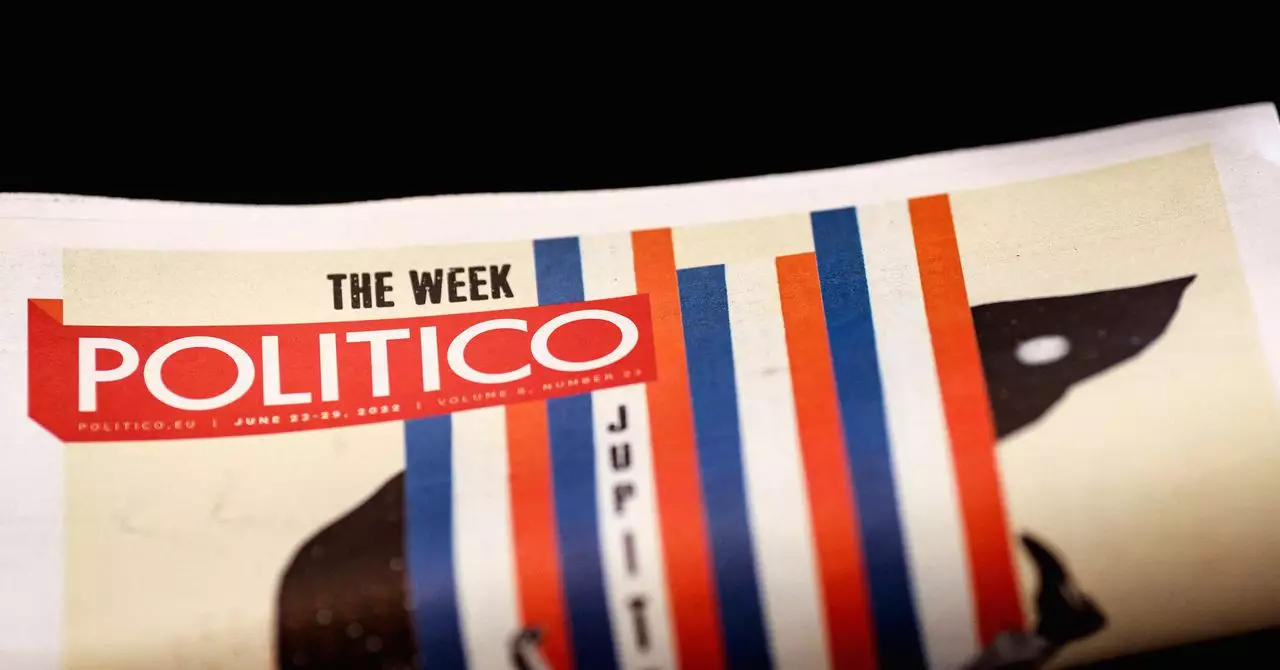In an era where artificial intelligence (AI) is poised to reshape industries, Politico stands out as a notable case study. Last year, the newsroom made headlines not just for its political reporting, but also for becoming one of the first media outlets to secure a union contract that encompassed stipulations regarding the use of AI in journalism. This development heralds a potential turning point in how media organizations integrate technology while striving to maintain ethical standards in reporting. The PEN Guild, representing both Politico and its sister outlet E&E News, now finds itself on the brink of a uniquely consequential legal battle, as union members assert that their collective bargaining agreement’s terms regarding AI usage have been violated.
The Groundwork for Legal Precedent
As the union prepares to take its grievances to arbitration, the implications of this conflict extend well beyond the walls of Politico. The outcome could set a significant legal precedent for other newsrooms nationwide, determining how much influence journalists have over how AI is employed in their work. In a landscape characterized by ambiguity and a lack of federal regulations concerning AI, union contracts may become one of the few enforceable frameworks for ensuring accountability and ethical oversight.
The catalyst for this dispute is Politico’s introduction of AI-generated content that includes live news summaries, particularly during critical political events such as the Democratic National Convention and the vice presidential debates. The newspaper’s innovative approach to AI, denoted by its launch of a set of tools called Policy Intelligence Assistance, has raised eyebrows among its staff. While Politico executives tout these tools as a seamless integration of technology with their policy expertise, the union claims their deployment infringed on the terms of the contractual agreement, arguing that there was a failure to provide advance notice and bargain in good faith.
Ethics and Accountability: The Union’s Standpoint
Union members argue that these AI tools encroach upon the responsibilities traditionally held by human reporters, raising questions about the integrity of the editorial process. Ariel Wittenberg, the union chair, emphasizes that this dispute transcends the realm of a mere contractual disagreement; it speaks to the broader issue of whether journalists can exert influence over how technology is applied in their profession. The sentiments echoed by Jon Schleuss, the president of Newsguild, hold particular weight in this context, as he asserts that current union contracts may be among the last bastions of enforceable standards amid a vacuum of federal regulation.
Politico’s management responded by asserting its commitment to ethical journalism and its intent to honor all obligations stipulated in the union contract while simultaneously welcoming technological advancements such as AI. However, concerns linger regarding whether the application of AI adheres to established journalistic standards. The union has contested this notion, pointing to instances of biased language and factual inaccuracies in AI-generated content. For instance, phrases like “criminal migrants” and errors in attributing actions to the correct political figures exemplify the pitfalls of insufficient human oversight in the automated content production process.
The Human vs. Machine Paradox
As AI continues to evolve and become more integrated into the news production cycle, the paradox of human oversight versus machine efficiency surfaces prominently. While AI can dramatically expedite processes and handle vast amounts of information, the essence of journalism—the subtleties of context, the importance of accurate representation, and the ethical implications of language—remains rooted in human judgment. The discrepancies noted by union members highlight a crucial tension: Can AI replicate the nuanced decision-making that seasoned reporters have honed over years of experience?
The challenges presented by this collision of technology and journalism underscore the need for robust policies and practices that empower journalists rather than diminish their roles. For union members, this ongoing dispute is not simply about negotiating terms; it’s a fight for the soul of journalism in an age where AI threatens to blur the lines between human and machine-driven narratives.
As this legal battle unfolds, the implications for the future of journalism are monumental. The need for ethical standards in AI use is underscored, emphasizing that implementing technology must not come at the expense of journalistic integrity. By advocating for their rights and outlining clear parameters for the use of AI, journalists are not merely protecting their jobs—they are striving to uphold the quality and credibility of news in a rapidly changing digital landscape.


Leave a Reply